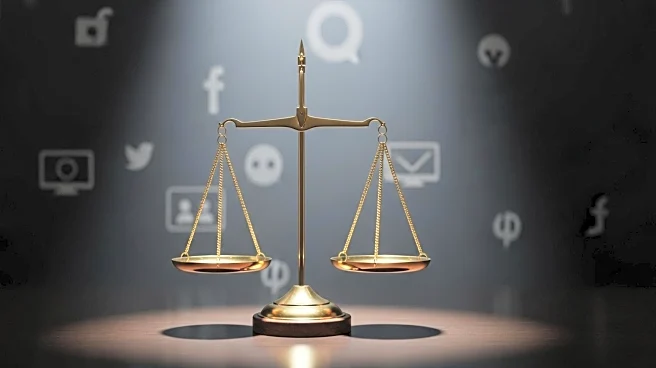What's Happening?
Michael Ben'Ary, a senior national security prosecutor in the eastern district of Virginia, was recently dismissed from his position. The termination followed a social media post by Julie Kelly, a pro-Trump commentator, who accused Ben'Ary of being an ally of Lisa Monaco, a senior Justice Department official involved in the investigation of President Trump's role in the Capitol riot. Ben'Ary, in a farewell note to his colleagues, expressed concern that his firing was based on misinformation from a single social media post. He highlighted his involvement in prosecuting a suspected member of the Islamic State's Afghan branch, responsible for a deadly attack during the U.S. withdrawal from Afghanistan in 2021. Ben'Ary's dismissal is part of a broader pattern, as other prosecutors, including Erik Siebert and Troy Edwards, have also left their positions under similar politically charged circumstances.
Why It's Important?
The firing of Michael Ben'Ary underscores the ongoing tensions within the U.S. Justice Department, particularly concerning the influence of political narratives on legal proceedings. This incident raises questions about the independence of federal prosecutors and the potential impact of social media on their careers. The situation highlights the challenges faced by the Justice Department in maintaining impartiality amid political pressures. The removal of experienced prosecutors like Ben'Ary could have significant implications for ongoing national security cases, potentially affecting the prosecution of high-profile terrorism cases and the broader integrity of the justice system.
What's Next?
The fallout from Ben'Ary's firing may prompt further scrutiny of the Justice Department's decision-making processes, especially regarding the influence of external political pressures. There could be calls for investigations into the circumstances surrounding the dismissals of Ben'Ary and other prosecutors. Additionally, the Justice Department may face increased pressure to ensure that future personnel decisions are based on merit and evidence rather than political considerations. The broader legal community and civil society groups may also advocate for reforms to protect the independence of federal prosecutors.
Beyond the Headlines
This development may have long-term implications for the relationship between the Justice Department and the executive branch, particularly in how political considerations are managed within legal frameworks. The case also highlights the growing role of social media in shaping public perceptions and influencing governmental actions, raising ethical questions about the balance between free speech and responsible governance.










